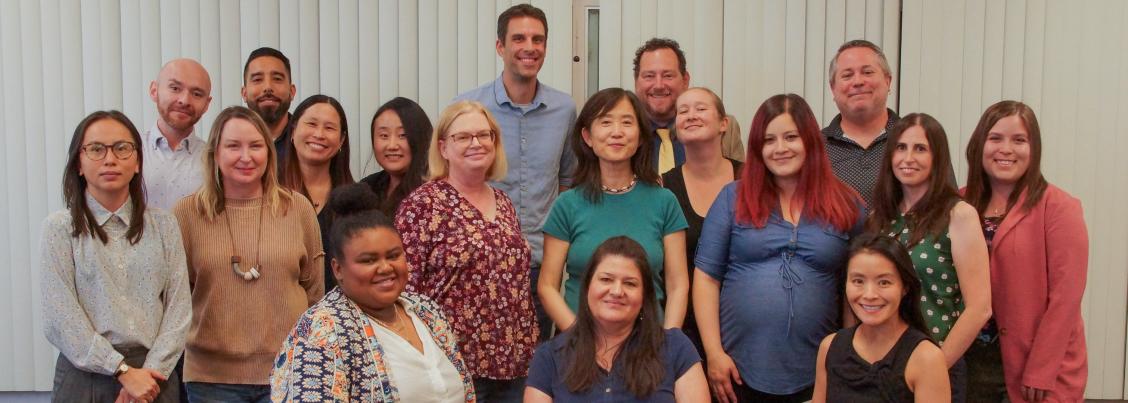
Biography
Education
- Ph.D. 2005, University of California, Santa Cruz (Developmental Psychology)
- B.A. 1994, California State Universtiy, Northridge (Psychology and Mexican American Studies)
Specialty Areas: Developmental Psychology, Family Involvement, Identity development, Academic Achievement
Gabriela Chavira is a professor of Psychology at California State University Northridge (CSUN). She earned her doctorate in developmental psychology at the University of California Santa Cruz. Currently, she is a principal investigator and student training core co-director of the National Institutes of General Medical Sciences (NIGMS) undergraduate research training program, BUILD PODER, aimed at preparing historically underrepresented students for graduate studies. She uses Critical Race Theory (CRT) as a framework to engage over 300 undergraduate minoritized students in preparation for doctoral studies through year-long faculty mentored research. Her research is interdisciplinary examining the factors contributing to the well‐being and achievement of immigrant youth in the US. Gabriela started as an NIH MBRS undergraduate scholar (1995-97) at CSUN and is a passionate and committed advocate for student access and success. She received the campus-wide Don Dorsey Award for Excellence in Mentoring in 2013 and the 2020 Society for the Advancement of Chicanos/Hispanics & Native Americans in Science (SACNAS) Outstanding College/University Mentor Award.
Courses Taught
PSY 150 – Introduction to Psychology
- PSY 313 – Developmental Psychology
- PSY 361 – Adolescence
- PSY 475CC/S – Advanced Inquiry in Developmental Psychology and Seminar - Cultural Contexts of Development
- PSY 512 – Seminar in Developmental Psychology – Developmental Theories
- PSY 594HC – Tutorial in Psychology: Teaching of Psychology
Selected Publications
- Norris KC, McCreath H, Seeman T, Aley SB, Chavira G, Christie C, et al. (2020). Baseline characteristics of the 2015-2019 first year student cohorts of the NIH Building Infrastructure Leading to Diversity (BUILD) Program. Ethnicity & Disease, 30(4), 681-692. doi: 10.18865/ed.30.4.681 https://pubmed.ncbi.nlm.nih.gov/32989368/
- Vargas JH, Saetermoe CL, Chavira G. (2020). Using Critical Race Theory to reframe mentor training: Theoretical considerations regarding the ecological systems of mentorship. Higher Education. https://link.springer.com/article/10.1007/s10734-020-00598-z
- *Martinez, G, & Chavira, G. (2019). A college knowledge program for Latino immigrant families: Examining pre- and post- parental academic involvement and adolescents’ academic goals. Social Sciences, 8(10), 275. https://www.mdpi.com/2076-0760/8/10/275
- Saetermoe CL, Chavira G, Khachikian C, Boyns, D, & Cabello B. (2017). Critical Race Theory as a Bridge in Science Training: The California State University, Northridge BUILD PODER Program. Biomedical Central Proceedings. https://bmcproc.biomedcentral.com/articles/10.1186/s12919-017-0089-2
- Chavira G, Cooper CR, & *Vasquez-Salgado YE. (October 2016). Pathways to Achievement: Career and Educational Aspirations and Expectations of Latina/o Immigrant Parents and Early Adolescents. Journal of Latinos and Education, 15(3), 214 – 228. doi:10.1080/15348431.2015.1131693. https://www.tandfonline.com/doi/abs/10.1080/15348431.2015.1131693
- *Vasquez, YE, & Chavira G. (2014). The transition from middle school to high school among Latino youth. Journal of Hispanic Behavioral Sciences, 36(1), 79-94. doi: 10.1177/0739986313513718. https://www.ncbi.nlm.nih.gov/pmc/articles/PMC4155758.
- Cooper CR, Cooper RG, Azmitia M, Chavira G, & Gullatt Y. (2011). Chapter 4: Capital, alienation or challenge? What matters for pathways to college. In C. R. Cooper (Ed.) Bridging Multiple Worlds, (pp. 43 – 53). New York: Oxford University Press.




